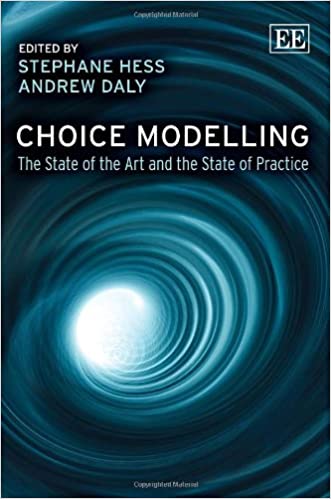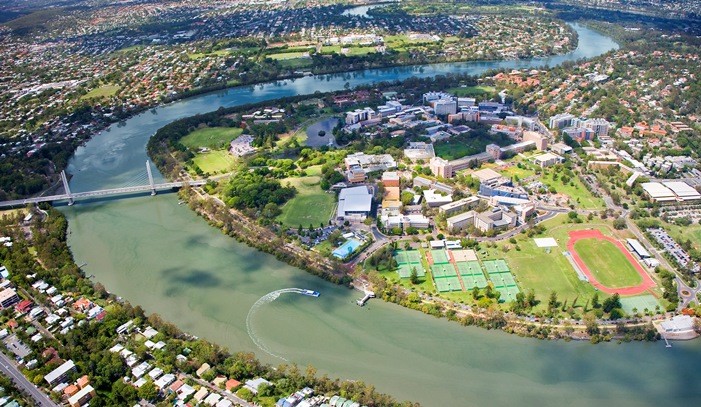This 2-day masterclass introduces students to choice models, discusses and contrasts the family of available model structures, and also talks about the data requirements, model estimation, and the use of models to produce outputs for policy. The course consists of a mix of theoretical lectures and case studies.
This course is being hosted in-person at the University of Queensland's Business School at the St Lucia Campus, Brisbane.
This course will be followed up by the Applied Choice Modelling using Apollo Master-class on June 1-2, also in-person at UQ's St Lucia campus.

Choice modelling is a specialised area of micro-econometrics that develops and applies mathematical models that represent human decision making. Choice models are used extensively to understand current behaviour and predict future choices in the applied fields of the economic sciences, especially environmental, health, and transport economics. Other application areas include business and marketing. In addition to addressing questions of academic interest, choice modelling informs policy and strategy making in these applied economic disciplines.
This 2-day masterclass introduces students to choice models, discusses and contrasts the family of available model structures, and also talks about the data requirements, model estimation, and the use of models to produce outputs for policy. The course consists of a mix of theoretical lectures and case studies.
Stephane Hess is Professor of Choice Modelling and Director of the Choice Modelling Centre at The University of Leeds (UK). Stephane is a globally recognised leader in choice modelling with interests in behavioural models, travel behaviour, health choices, and decision making. His specific academic contributions include developing advanced choice models and empirical contributions across many fields. He is the editor of the Journal of Choice Modelling (the leading international, interdisciplinary journal in choice modelling), the chair of the International Choice Modelling Conference, and co-developer of Apollo (with David Palma, Leeds, UK), a widely used (open-source) estimation software for choice models.
This two-day masterclass introduces students to the fundamentals of choice modelling through a series of lectures. The masterclass will specifically introduce participants to the family of econometric models that are typically used in choice modelling – both in academic and applied projects. Examples are used throughout the masterclass with application areas including environmental, health, and transport economics.
The target audience includes both academic and applied researchers including university researchers and research students, and researchers and policymakers from government agencies and departments.
Day 1
- Session 1: Introduction to choice modelling and data for choice modelling (revealed and stated preferences).
- Session 2: Random utility theory and the Multinomial logit model (MNL).
- Session 3: Model estimation, specification testing, interpretation of MNL results and forecasting.
- Session 4:Models allowing for flexible error structures, including Nested and Cross-Nested Logit
Day 2
- Session 1: Allowing for deterministic heterogeneity in preferences
- Session 2: Random heterogeneity, including Mixed Logit and Latent Class; Advanced model estimation in Apollo
- Session 3: Advanced modelling topics, including Hybrid choice models and departures from the Random Utility framework
- Session 4: Choice modelling in practice, joint estimation on RP and SP data, and use of novel data sources.
This is a lecture-based masterclass delivered in person.
The masterclass consists of a series of lectures and interactive discussion sessions.
Participants should be willing to participate in these (facilitated) discussion sessions.
Participants should have some familiarity with linear and logistic regression.
There is no requirement for previous experience in choice modelling.
Hess, Stephane and Andrew Daly (eds.) (2014), Choice Modelling: The State-of-the-Art and the State-of-Practice. Cheltenham, UK; Northampton, MA: Edward Elgar Publishers.
Train, Kenneth (2009), Discrete Choice Methods with Simulation. Cambridge University Press, Cambridge MA.

On campus accommodation may be available at UQ through some of the colleges. Not all of them offer accommodation during Semester breaks, so it is best to contact them directly. This is a link to a UQ web page that will link you to their websites. Many of them will have links to 'conference' or casual accomodation.
https://my.uq.edu.au/student-support/accommodation/uq-residential-colleges
Other Accommodation options
There are several other options in suburbs around the campus, St Lucia, Toowong and West End, which are connected to UQ by the CityCat river ferry and several bus services. Toowong is also only a few minutes from the city by train. A web search of 'St Lucia accommodation Brisbane' should provide you with some options. It is also possible to stay in the CBD and enjoy a reasonable commute, particularly if staying close to a CityCat (river ferry) stop or near Roma St Station (bus). Follow this link for information about getting to the St Lucia campus.
Otherwise you may be able to find a room or apartment via Airbnb or one of the many accommodation aggregator sites like www.wotif.com or www.lastminute.com. Just type in the suburb of St Lucia.
This is a link to UQ's information page about the various ways to get to the St Lucia Campus.
Ferry
The Brisbane City Council (CityCat) ferry service operates between the city (and beyond) and St Lucia. The ferry is a pleasant way to travel to campus and is also an effective way of commuting from areas such as Toowong and the city. The ferry stop at UQ is only a short walk from the Business School Precinct, where most ACSPRI courses will be run.
The latest updates on the ferry service can be found through http://jp.translink.com.au/travel-information/network-information/ferries/T/citycat
Bus
Brisbane City Council buses stopping at UQ take you to one of two bus terminals. One is at Chancellor's Place (near the J. D. Story Building). The second terminal is at "UQ Lakes", at the far east of the campus near Playing field 3, which is at the UQ end of the Eleanor Schonell Bridge. A journey planner is available at this link.
Bicycle
The University of Queensland (St Lucia) is ideally accessed by bicycle, with a safe riverside bicycle path connecting St Lucia campus to the city. You can follow the roads or use combinations of roads and bike paths. Remember too, that bikes may be taken on City Cat river ferries. There is a University Bicycle Shop in the St Lucia Campus Union Complex and bike parking facilities are available.
Taxi
Taxi ranks are located on the roundabout at Chancellors Place, and in University Drive, at St Lucia Campus.
Car Parking
Parking can be difficult to find on campus during the semester when classes are in session.
Paid parking operates on the St Lucia campus from 7:00am to 9:00pm every weekday.
Please follow this link for details about casual parking at the St Lucia Campus, including maps showing car park locations, zones, parking conditions & signs.
At St Lucia, there are two ways to pay for casual parking: CellOPark and Pay by Plate. Signs located in each zone have information on how to register for CellOPark, or pay using the Pay by Plate machines. This link explaining how these systems work.
ACSPRI accepts no responsibility for organising parking or parking fines incurred by program participants.
